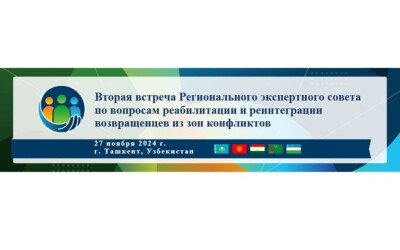ISRS hosted a meeting with the Iranian Ambassador

On November 22 this year, Director of the Institute for Strategic and Regional Studies (ISRS) under the President of the Republic of Uzbekistan Eldor Aripov met with newly appointed Ambassador Extraordinary and Plenipotentiary of the Islamic Republic of Iran Muhammadali Iskandari.
During the conversation, the sides discussed the current state and prospects for the development of Uzbek-Iranian relations, as well as the establishment of partnership between leading think tanks of the two countries.
Taking the opportunity, Eldor Aripov congratulated the Ambassador on his appointment as the head of the IRI diplomatic mission in Tashkent and wished him success in his responsible work.
Muhammadali Iskandari highly assessed the large-scale reforms under the leadership of the President of Uzbekistan aimed at developing the country and improving the welfare of the population.

The head of the Iranian diplomatic mission also noted with satisfaction the significant intensification of cooperation between Tashkent and Tehran in recent years. One of the key areas of bilateral cooperation is the development of trade and economic cooperation. In the period 2017-2023, trade turnover increased by more than 60% (from 325 million to 505 million dollars). In 2023, an agreement was signed between the governments of the two countries on preferential trade.
During the conversation, special emphasis was placed on the prospects for deepening transport connectivity between Uzbekistan and Iran. The parties emphasized that the two countries are actively cooperating in promoting a number of transport corridors such as: "Uzbekistan-Turkmenistan-Iran-Oman" ("Ashgabat Agreement"), "CA-Iran-Turkey", "CA-Port of Bandar Abbas/Port of Chabahar", etc. "This will allow our countries to significantly increase trade potential on a mutually beneficial basis," the Iranian diplomat said.
The meeting participants agreed that cooperation in science, technology and innovation is being formed as one of the new promising areas of bilateral relations.
The interlocutors also recognized that an important place in building a bilateral partnership is occupied by dialogue between the "think tanks" of the two countries, which can make an important contribution to the joint search for new promising areas of cooperation of mutual interest.
Next

On November 27, 2024, Tashkent will host the Second Meeting of the Regional Expert Council on the Rehabilitation and Reintegration of Returnees from Conflict Zones.
26.11.2024





